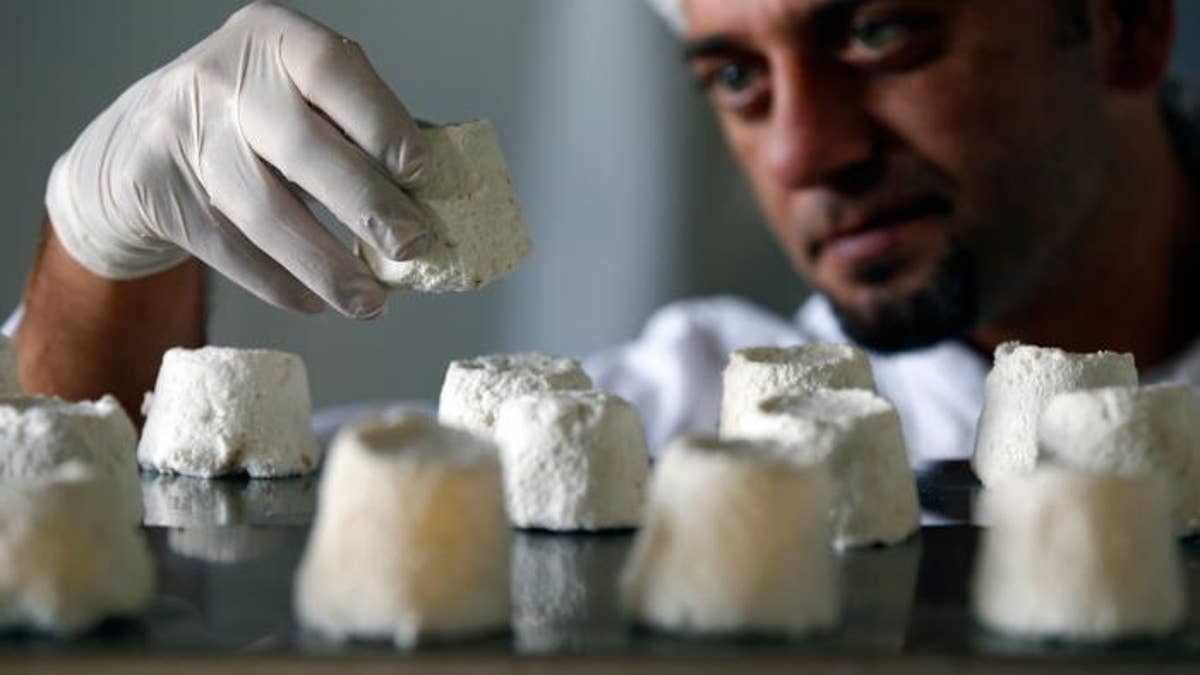
(Reuters)
What goes great with donkey cheese? Donkey sausage, of course.
That's the repast writer Kristin Vukovic enjoyed at the Zasavica Special Nature Reserve in Serbia, where milk from the beasts of burden is used to make the world's most expensive cheese. A small cupcake-sized mound of the stuff will set you back some $55.
Writing for the BBC, Vukovic describes the cheese, which can cost $600 to more than $1,000 per pound, as "sweet, clean, and mild, unlike any cheese I had ever tasted." (Another writer described the flavor of the "magareci sir" — aka "pule cheese" — as "fusty-musty," per a 2012 New York Times piece.)
Former politician Slobodan Simic started the Zasavica reserve about two decades ago. A few years after that, he rescued some abused Balkan donkeys. Now, the females in his herd (of about 180 animals) are responsible for supplying all the milk for the world's donkey cheese supply, per the Mother Nature Network.
Vitamin-rich donkey milk has also long been heralded as an immunity booster, anti-aging serum, and a kind of natural Viagra. More recently, Simic had the idea to start making cheese with the milk of donkeys. Because the milk is low in a protein needed to make cheese, it is mixed with goat's milk — 60/40, favoring donkey milk. Production of the donkey cheese is similar to that of goat cheese, Vukovic writes, but the "exact method is a secret."
As for why it's so expensive, it takes three gallons of donkey milk to produce a pound of cheese, and female donkeys (who must be milked manually three times a day) don't produce much milk.
The cheese — which made headlines in 2012 on a rumor that tennis star Novak Djokovic was buying the whole year's supply — isn't the only donkey product Zasavica makes. The farm's offerings include soap, face creams and a donkey-milk liqueur. As for the sausage, Zasavica's farm manager tells Vukovic that it is made from male donkeys that have taken on a taboo interest in their female offspring.
(In other cheese-related news, this 340-year-old shipwreck cheese resembles "granular Roquefort.")




















